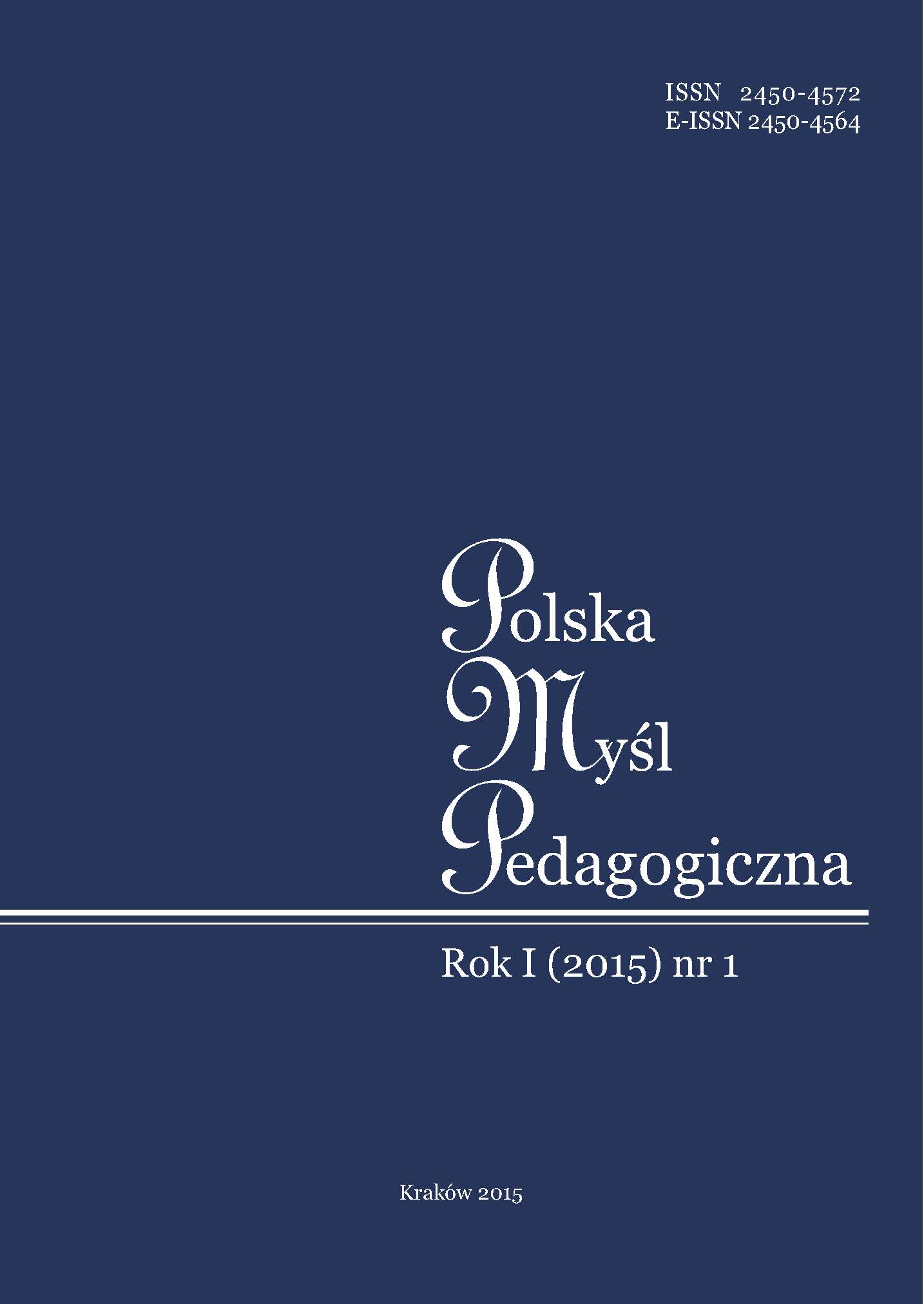Wychowanie i niepodległość. Idea polskiej szkoły w publicystyce społeczno-oświatowej Heleny Radlińskiej (1907-1918)
Education and independence: Helena Radlińska's idea of a Polish school in socio-educational journalism (1907-1918)
Author(s): Wiesław TheissSubject(s): Social Sciences, Education
Published by: Wydawnictwo Uniwersytetu Jagiellońskiego
Keywords: Helena Radlińska; Krakow; independence camp; democratic traditions of education; national action; the struggle for culture; educator-fighter; social school; cultural and social work; social pedagogy
Summary/Abstract: Helena Radlińska (1879-1954), historian and educator, in the years 1907-1918 was a known activist of independence camp, grouping, which led by Józef Piłsudski fought for independence of the country. In a climate of contemporary historical events, political disputes and conflicted visions of an independent country, Radlińska created and promoted the concept of Polish school. This project was bold, uncompromising and forward-looking. It referred to the tradition of the National Education Commission and the experience of the democratic schools, among others, in the United States and Switzerland. Above all, however, it takes into account the educational needs of Polish society, the time of partition, and a future independent country. The presented project evolved from a "school fighting" with virtual education solutions of invaders and with the educational programs of the conciliatory national environments, through the "social school" which was supposed to ensure education for all children, regardless of social, economic, religious differences, following the model of "school of free Poland", school centered on education of patriots and engaged citizens and implementing the program of depth knowledge about Poland. Project of the Polish school, which was built by Radlińska, groundbreaking and forward-looking, based on the inalienable values of democracy, occupies an important place in the history of Polish educational and pedagogical thought of the first two decades of the twentieth century.
Journal: Polska Myśl Pedagogiczna
- Issue Year: 1/2015
- Issue No: 1
- Page Range: 19-38
- Page Count: 20
- Language: Polish

